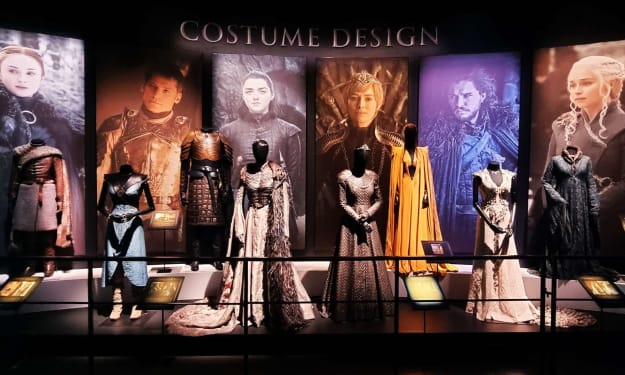No it's pronounced "kon-nichiwa"
A little bit Japanese in a very Western world

My mother is Japanese, my father is Caucasian. There are thousands like me living in Australia and other Western countries. I've been told countless times that half-Asians are so beautiful, or that they are jealous of my exotic appearance. They say I'm lucky to have learned a second language growing up, or that I must have eaten the best food growing up.
Yes, sure, I suppose you're right. But how about a deeper look into the world of cross-cultural upbringing?
I was born and raised in Australia, predominantly by my Japanese mother. At a young age I would get teased for pronouncing some words the way my mother did despite having been born here in Australia. I didn't know my mother had an accent. I wasn't aware enough in primary school to really understand I was different. Dress up days or parties were always difficult for me. No matter how hard I brainstormed, I couldn't think of of any character that looked like me (except Lucy Liu from Charlie's Angels which wasn't entirely appropriate). So I gave up and dressed up as Lady Galadriel one time and Lara Croft another. You can bet no one guest my costumes.
Side note, I was always trying to work out how the other girls did messy buns, they looked so damn good.
By the time I was 12, I started to notice something. If I was the first to make jokes about Asians, everyone thought it was great. Instead of waiting for the rice jokes or the maths jokes, if I got in first and said, "I'm Asian and I don't even know the answer to that," everyone laughed. I thought I'd cracked the code. By the time I got to high school, my friends new me as the most racist-against-Asians person they knew (but in a good way). At some point I realised I didn't find the jokes funny, but it had become part of my persona so I kept it up.
Oh, and that delicious food I ate growing up? The leftover rice-based dishes that I took to school encouraged the odd comments and scrunched noses. I eventually found a way to swap them out for white-bread sandwiches.
It would be years before I realised what had happened. In order to avoid becoming the butt of jokes or feeling the sense of "otherness", I'd doubled down on my Aussie personality and rejected all things Japan. Instead of finding the cultural balance within myself, I sided with the West and pointed my finger with them.
Towards the end of high school, I noticed another thing. Everyone seemed to have complete freedom to do anything they wanted once they turned eighteen. Complete freedom wasn't anything I expected to achieve at home, but the idea of reaching adulthood on my eighteenth birthday was exciting. My upbringing was strict, so any reprieve was welcome. That hope was quickly extinguished when my mother reminded me that 20 is the age of adulthood in Japan. Well, she got me there. Turns out I wasn't wholly in control of how much I let Japanese culture influence me. Again, I was a little bit different.
As I left high school and started working and studying, I struggled to avoid that "otherness." I found myself saying "oh, I actually don't watch any anime" to acquaintances, after a completely unprompted monologue about Death Note. I started getting really good at replying with "Penrith" whenever I was asked where I came from. It was common for people to resort to saying "Man, I'm more Asian than you are" when I didn't reciprocate certain "Asian" interests. Still, I found myself explaining my heritage and minimal Japanese speaking ability way too often for someone who didn't find much comfort in her Japanese identity.
First dates quickly became as much about investigating a person's Asian-fetishisation as it was about chemistry. Few things were as disappointing yet expected as being called "exotic" or listening to a 20min rant about attractive qualities "Asian women" possess. To which I always wanted to say, "Exotic? Classy? You fuckin' right, mate?" As though all Asian women have shared physical and personality characteristics, as opposed to being as diverse as "normal women". Yet again, someone was interested in me because I fit their fantasy rather than because of my personal qualities.
It became clear that no matter how I spoke, what my interests were or how I identified, I was always going to have Asian features, and so I was always going to receive a specific kind of attention. I realised the problem wasn't in my ability to avoid being recognised as Asian, the problem was everyone else's approach to Asians. Rather than trying to circumvent such interactions, a much more powerful tool was to build my identity as a proud Japanese-Australian person.
The issue was worse than I knew, and I felt a little stupid for not seeing it earlier. Friends started telling me about instances when strangers had complained openly about "fucking Asians" to them, assuming that another white person would be on board with such blatant racism. I realised I wasn't even seeing the worst of it, because the worst of it was behind my back. I don't hear most of the insults and mimicry because they're politely kept from me.
And for the first time in my life, in 2021, I watch my back when I walk alone, not because of my feminine appearance, but because of my Asian features. For the first time I feel the burn of injustice against my people. It shouldn't be surprising that violence against Asians has risen in the wake of COVID-19. When mockery, disregard and fetishisation of a people is considered normal, the environment is ripe for violent escalation. The problem didn't start last year, it's always been there.
Anyway, I have to go and relearn Japanese now.
About the Creator
Eriko Jane
Psychology student / film buff / socially progressive
Twitter: janesonthetrain






Comments
There are no comments for this story
Be the first to respond and start the conversation.